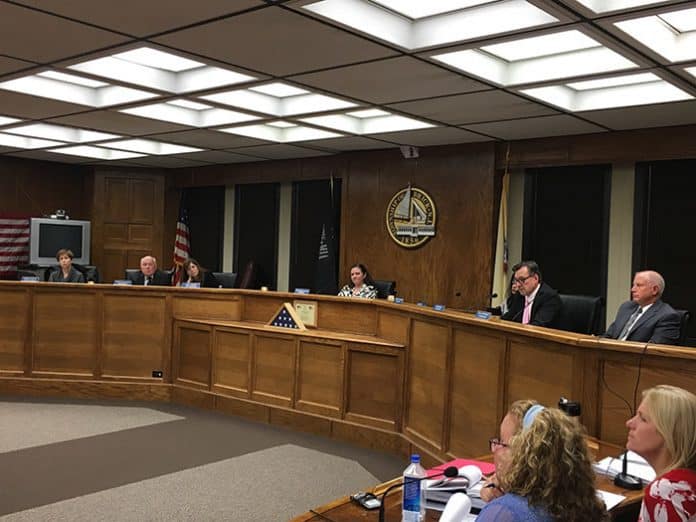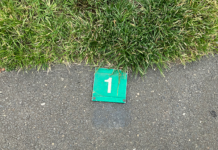
BRICK – The 2018 municipal tax will be going up less than a half percent over last year’s budget, or $47.50 a year ($4.58 a month), for a median home in the township valued at $250,000.
After the public hearing, the governing body adopted the $100,978,885 municipal budget, up $471,742 over last year’s budget.
Council President Heather deJong said the spending plan is $2,524,345 more than the last budget prior to this administration (2013, the final year under Mayor Stephen Acropolis), or a five-year growth of 2.56 percent.
Some of the notable increases in the 2018 municipal budget include more than $1 million for insurance; police salaries and wages up nearly $900,000; and increased pension contributions of $477,000. She said there is a significant revenue loss in the budget without the $1 million annual contribution by the BTMUA, which has been in the budget since 2010.
“If these funds had been factored into the budget, the increase would have been 1.1 cent,” deJong said.
Business administrator Joanne Bergin said the township did not request the $1 million donation because the BTMUA would be making significant capital improvements this year and would not have the additional funds in surplus.
During the public hearing on the budget, Bergin and township chief financial officer Maureen Laffey-Berg fielded wide-ranging budget questions from members of the audience.
When asked about the increase in employee salaries from $37 million to $39 million, Bergin said the increase was due to new police officers and contractual increases for township workers who are “moving up the chain in longevity and years of service.”
She said that in an effort to decrease the anticipated $105,000 line item for water usage, the administration had applied for a water allocation permit to create wells to be used for irrigation at township parks.

“It’s a very difficult process that we’ve been involved with for a few years, and we’re very fortunate to have gotten to a point where we have a hearing coming up,” she said.
“But a hearing does not equate to an approval, so the budget does not include an adjustment for an anticipated expenditure for water until we know we’re going to have that permit in hand, and we can go about the process of creating wells and using them in our system,” Bergin said.
One member of the public noted that the budgeted cost of electricity in the 2018 budget is $1.035 million, up from $820,000 the previous year.
The previous administration inked a deal with Brick Standard, LLC to build a solar farm at the site of a former landfill on Sally Ike Road. The solar panels began producing power in 2014, and the agreement included a $13 million cost savings to the township over 15 years.
“The solar farm at the landfill is not generating the revenue we anticipated. It’s doing the opposite,” Bergin said.
The council has authorized the administration to work with a new energy consultant to find a strategy to turn that around and generate revenue, “because right now, quite frankly we’re not,” Bergin said.
The solar field developer has been put on notice that the contract would be cancelled and that other proposals are being solicited, she said.
“He makes all the money and we’re paying for it, and we’re paying high for our electric,” added Mayor John G. Ducey.
The budget also includes $8.5 million for uncollected taxes, the same amount it has been since Superstorm Sandy, explained Laffey-Berg.
“We had to have the money there for taxes that were not being collected,” she said. “It’s not really a reserve, its money there for this year’s budget that we’re using on the appropriations side. They call it reserve but it’s not really a reserve where that money goes anywhere and gets tucked away. So the title of it is misleading,” she said.
In last year’s budget the full $8.5 million was used. Any money set aside for uncollected taxes and not used gets funneled into surplus for the following year’s budget, Laffey-Berg said.
And finally, Ducey said the township would not collect the $5 million from the sale of the former Foodtown site until all the permitting is in place and the two developers each pay $2.5 million to build a sports dome and a retail complex there.
The next council meeting will be on Tuesday, May 8 at 7 p.m.






